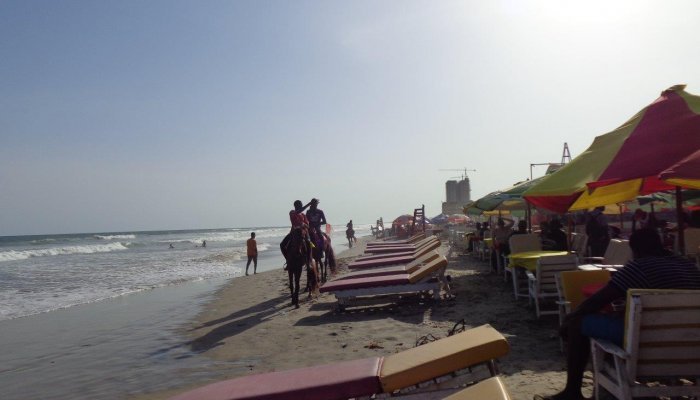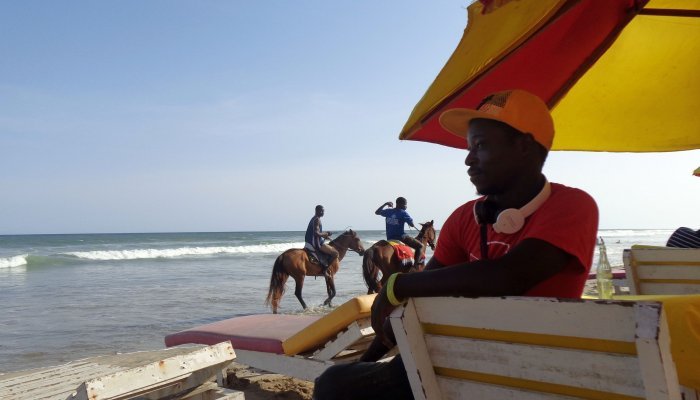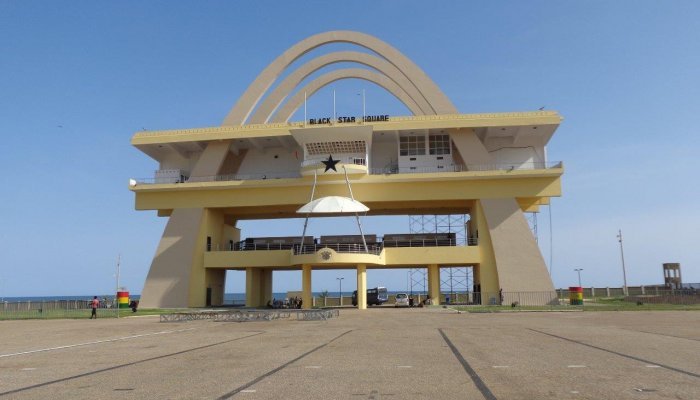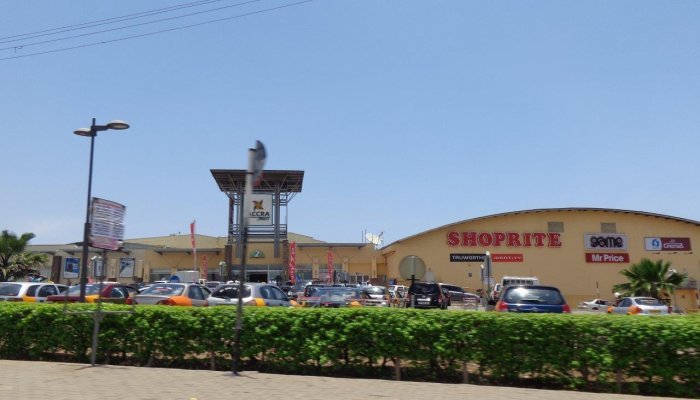There is no doubt that Ghana will bounce back from its current travails, the country’s finance minister confidently declared after visiting Washington earlier this year to finalise the details of a $1 billion bailout package offered by the International Monetary Fund (IMF) to put the West African nation back on course.
Such optimism from the man at the helm of Ghana’s economic crisis is surprising. Last year he drastically revised the country’s growth forecast for 2015 down to 3.9% from about 7% in 2014, predicting a tough year ahead.
The commodity dependent economy has been buffeted by a serious fiscal deficit that has resulted from a mix of high government spending, increasing imports and declining revenues. It is also experiencing its worst-ever energy crisis. The combination of problems led the government of this formerly donor-deendent nation to knock on the door of the IMF last year, asking for help.
In April the IMF finally approved a long-awaited three year $918 million financial assistance deal aimed at restoring economic stability and boosting the economy. About $114 million would be released immediately.
The move will give comfort to potential investors and fund managers, many of whom still have the country firmly on their radar despite the challenges. They appear to agree with Finance Minister Seth Terkper that the country will spring back to its former growth levels once the crisis has been tackled.
Its past fortunes have been boosted by political stability, high growth rates and huge opportunities in almost every sector. And it is only a short flight away from Africa’s biggest economy – Nigeria - but a more relaxed place in which to live and work.
Many companies looking for opportunities in the wider West African market see Ghana, rather than Nigeria, as the gateway given its more central location and easier operating environment. But the country itself offers many opportunities created by its past growth and diversification into new sectors.
In 2014, despite its challenges, Ghana was ranked by the World Bank as the fourth easiest country in which to operate in Sub-Saharan Africa after Mauritius, South Africa and Rwanda.
What went wrong?
Ghana was, not long ago, one of the high performing African countries that helped to fuel the “Africa Rising” narrative. It is now an example of how quickly things can go wrong.
Until 2013, the country was regarded as one of the most attractive emerging market economies in the world. Its political stability, relatively investor friendly operating environment, high growth rates, and low hanging fruit attracted significant investor interest.
In 2010, Ghana celebrated its new status as Africa’s newest oil producer. The development of the large oil fields off the coast pushed GDP growth to unprecedented levels, reaching 20% during 2010. Growth in 2011 was an impressive 14.4%.
In 2010, the country also rebased its economy. Overnight it became a middle income nation, with a 69% leap in GDP from $15.3 billion (2009 figures) to $25.8 billion. GPD per capita rose from under $800 to $1,363.
But by 2013 it was apparent that not all was well as the country lurched into a revenue crisis, largely caused by oil. High-cost imports to build infrastructure for the oil industry were not offset by commodity exports in an era of lower prices for Ghana’s main revenue earners, particularly gold, which lost more than 25% of its value in 2013.
The anticipation of oil revenues at a time of high prices also prompted the government to spend recklessly. A key beneficiary was the public service. In 2013, 47% of government revenues went on government workers’ salaries, up from an already high 44% the year before. By 2014, the public sector wage bill was a significant 49.3% of tax revenue.
The country spent bucket loads of money on two elections – in 2008 and 2012. High oil prices hit consumers’ pockets as the government imported fuel to bolster its deficient energy sources but the government cushioned the impact with subsidies. High recurrent spending on government departments and debt repayments absorbed significant resources.
While government tax revenue stayed constant at about 17.7 percent of GDP between 2011 and 2013, government expenditures increased from 20.1 percent of GDP in 2011 to 26.7 percent at the end of 2013.
But the oil industry had a setback – technical problems in the oil fields meant production, and thus revenue targets, were way off for a while.
The country continues to be dependent on commodities, as it has been for decades. It raises 72% of export revenues from just three commodities — gold, cocoa and now oil. Manufacturing as a percentage of GDP has declined over the past 20 years.
In 2013, the signs of the impending crisis started showing. Inflation began to rise and the currency, the cedi, weakened. In February 2014, the government took the drastic step of introducing strict foreign exchange controls in a bid to arrest the cedi’s decline. They were later relaxed after having little effect. Inflation continued to rise, reaching 17% later in the year, and interest rates spiralled.
In August, the embattled government turned to the IMF for help. But before the details had even been agreed on, the economy was hit by another shock – a plummeting oil price.
This meant that even with crude production back on track, the government’s hopes of addressing the fiscal crisis with oil revenues were dashed. Terkper has slashed the oil revenue forecast in 2015 by a massive 64%. In 2014 just over $400 million is expected to be realised from oil sales, compared to $3.83 billion in 2013.
Rising debt is part of the problem. Ghana, despite being a beneficiary of more than $3 billion in debt debt relief in the 1990s, has quickly rebuilt its debt stock.
In October 2007, Ghana, under then president John Kuffuor, became the first sub-Saharan African country outside South Africa for 30 years to issue a dollar-denominated bond. The $750m Eurobond, which had an 8.5% coupon rate, was four times oversubscribed. In 2013, Ghana listed a second $750 million Eurobond. The debt-to-GDP ratio now stands at 60%. The government has floated the idea of a further Eurobond of $1 billion to plug the fiscal gap. But the IMF is unlikely to agree to it.
Critical power shortages are a longstanding problem in Ghana, which relies on hydropower for most of its energy. In 2015, the country experienced its longest power crisis ever as a result of low water levels in the country’s dams and low supplies of gas that have seriously affected generation capability.
Load shedding has increased to record levels, with power to factories run by the likes of SABMiller, Coca Cola, Unilever, Fan Milk and Ghana Cement being switched off for 24 hours at a time. Mines have also had to agree to cuts. At a time of serious financial crisis, it will be tough for the government to find money to generate more power.
In 2014, the economy was also hit by the fallout of the Ebola virus contagion in the region. Despite the fact it did not have a single case, business slowed as investors waited to see what would happen, hotel occupancies fell and many expatriates left town.
Investment still flowing
Despite pessimism about likely FDI inflows in 2013, there was only a marginal decline to $3.2 billion from 2012’s $3.3 billion inflows. Investment continued in 2014, some of it related to the new oil fields being developed offshore, but the figure is likely to be lower in real terms.
Consumer spending, a major driver of new investment, has declined as Ghanaians bite the bullet in this difficult environment. But many of the investments in the country are long term, with money committed well in advance of the economic crash.
The property sector, in which South African companies and funders are strongly represented, has continued to boom and high-rise buildings now dot the skyline of the once sleepy city of Accra.
Airport City, a new business centre near the airport is the most visible sign of the property boom in the capital. Rand Merchant Bank has funded one of the biggest new Grade A office blocks - the $56 million Icon House. Stanbic in Ghana and Standard Bank of South Africa are partially financing a new commercial office and retail development, One Airport Square, being developed by Actis. There are others, including Atlantic Towers, owned by Ghana’s Meridien Group, and Nester Square.
Shopping centres are springing up all over, most of them developed by South Africans. Atterbury Property Holdings is leading the pack with two malls built – Accra Mall and the brand new West Hills Mall - and another three sites secured in Accra and Kumasi.
RMB Westport has also seen opportunities for formal retail, developing the Junction Shopping Centre, also in Accra. South African property management company Broll is managing several of the centres.
Firstrand, which is funding projects in property, oil and gas, ports and the power sector in Ghana, is setting up a fully-fledged bank there scheduled to open this year.
The shopping centres have drawn household retail names to Ghana. They include Shoprite, Game, Mr Price, Puma and Rhapsodys who trade alongside local tenants. The Foschini Group and Truworths, both of which are having a difficult time in Nigeria, are looking at Ghana for store expansion while Pick ‘n Pay is planning to launch in West Africa via Ghana.
Accra has also attracted a range of international hotel brands including Movenpick, Kempinski, Holiday Inn and Best Western with Zimbabwe’s Africa Sun also a newcomer.
In telecoms, MTN is the market leader and has seen subscribers and revenue rising on the back of diversified products. In 2013, Times Media Group, publishers of Sunday Times and Business Day, acquired a TV network and five radio stations in Ghana. Last year, it bought a 49% stake in Radio Africa Limited.
Despite the long-term optimism about this market, companies have had a difficult time over the past 18 months with the rapid decline of the macroeconomic environment. Costs have risen unexpectedly with the energy crisis forcing companies to rely on expensive generators for long periods. High levels of inflation coupled with a currency that declined by nearly 40% during 2014, have negatively affected business.
Foreign exchange controls hit property companies hard as they were forced to move from charging tenants in dollars to getting rentals in the ever weakening local currency for a while. Companies complained that they needed to increase profits in cedis by more than 50% in order to stand still in dollar terms.
Mining companies Gold Fields and Anglogold Ashanti have seen balance sheets under pressure from lower gold prices, hikes in corporate taxes and rising local costs. In 2014, Anglogold Ashanti announced it was shutting its Obuasi mine in a $300 million exercise that includes laying off hundreds of workers in order to reconfigure the mine over the next 18 months to make it a smaller, more profitable operation.
MTN’s Chief Executive Sifiso Dabengwa has said that volatile African currencies were among the company’s main concerns in African markets at present. It has been particularly hard hit in its biggest market, Nigeria, where the naira has been devalued but the decline of the cedi has also been costly.
There are also supply chain issues with the congested port at Tema outside Accra experiencing long delays in clearing goods as imports grow on the back of past high growth levels.
Although investors are having a tough time now, there is a general belief that investment in West Africa generally needs a long-term horizon to be viable. The arrival of the IMF in April may precipitate further hardships as the government is forced to cut back on populist spending but it will be a comfort to investors who see it as the start of the road to recovery.
Ghana’s new oil fields are expected to start production in 2016 and Terkper believes increased oil production in the near term from 110,000 barrels to 250 000 will eventually help to address the fiscal crisis.
He told the Financial Times in February, “The most important thing for now is for the markets to know we are serious about the IMF programme, which builds on policies we have been implementing already and that the medium-term prospects remain bright.”
Now all it takes is for hardy investors to hold onto their hats and hold on for the bumpy ride ahead.
Business etiquette in Ghana
It is important to remember that Ghana is nothing like its large, upfront and rowdy nearby Anglophone counterpart in West Africa – Nigeria. Ghanaians are more reserved and less direct in their approach. People can seem to agree with you and you will only realise later that they did not by the lack of response to future communications or by an overly quiet reaction to a proposal during a meeting.
Ghanaians tend to avoid any sort of confrontation. Be sure to use professional titles if people have them and break the ice with talk about family. Things tend to move slowly in Ghana so do not expect immediate results from a meeting.
Accra is a rapidly growing city and traffic congestion is a growing problem so be sure not to be too ambitious in planning meetings, depending on their locality. The city centre is quite small so it is possible to walk to meetings from centrally located hotels. Crime levels are low and it is safe to walk around during the day. But be aware and cautious as you would be anywhere.









